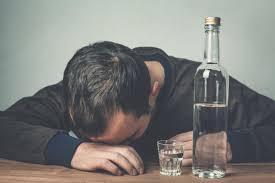
WHO Launches Campaign to Curb Alcohol-Related Deaths Across Europe
In an alarming revelation, alcohol accounts for nearly 1 in 11 deaths in the World Health Organization (WHO) European Region, making it a major public health concern. Despite its known risks, including being a direct cause of over 200 diseases—among them breast and colon cancers—public awareness about alcohol’s health impacts remains dangerously low.
In response, the WHO Regional Office for Europe has launched a new campaign aimed at reshaping how Europeans view and consume alcohol.
Alcohol and Cancer: An Overlooked Link
Alcohol is currently responsible for 8.8% of total deaths in the European Region. Yet, awareness of its direct link to cancer remains staggeringly low. A recent survey conducted across 14 European countries found that only 21% of women were aware of the connection between alcohol consumption and breast cancer risk—a risk that begins even at low levels of drinking.
With October marking Breast Cancer Awareness Month, the WHO campaign highlights the urgent need to close this knowledge gap. “Redefine alcohol,” the campaign’s slogan, aims to share the latest research on alcohol’s health impacts, promote informed decision-making, and initiate a broader dialogue on alcohol’s role in society.
Calling for a Cultural Shift
The “Redefine alcohol” campaign urges Europeans to reassess their personal and societal relationships with alcohol. Dr. Gauden Galea, Strategic Advisor to the WHO Regional Director for Europe and Director of the Special Initiative on Noncommunicable Diseases and Innovation, emphasizes that alcohol not only poses serious health risks but also contributes to a range of societal issues, including violence, road injuries, and gender-based harm.
“Beyond its physical effects, alcohol consumption is a key contributor to violence, including sexual and gender-based violence, road injuries, and other forms of harm that affect not only drinkers but their families and communities,” explains Dr. Galea. “Ultimately, people must be empowered to make informed choices about their own health and behavior.”
The campaign seeks to inspire a cultural shift by promoting healthier choices, encouraging open discussions, and sharing real-life stories of individuals who have successfully redefined their relationship with alcohol. These stories showcase the many benefits of reducing or quitting alcohol altogether, such as improved physical and mental health, better sleep, deeper relationships, and a renewed appreciation of life.
Addressing a Societal Challenge
While individual choices play a crucial role, Dr. Galea stresses that the current environment in Europe makes it too easy to access and consume alcohol.
“In our region, alcohol is too cheap, too available, and too heavily promoted,” he says. “We must create environments where healthier decisions are easier for everyone. A product that causes as much harm as alcohol should be more strictly regulated.”
Through collaboration with policy-makers, communities, and health advocates, the campaign aims to promote policies that make it easier for people to reduce alcohol consumption.
By advocating for stricter regulations and better public health policies, “Redefine alcohol” seeks to contribute to a safer and healthier Europe.
Translating Research into Action
The “Redefine alcohol” campaign is part of the broader WHO/European Union (EU) Evidence into Action Alcohol Project (EVID-ACTION), launched in 2022. Co-funded by the EU, EVID-ACTION aims to turn research findings into actionable policies across 30 countries in Europe, ultimately reducing alcohol-related harm and supporting the goals of Europe’s Beating Cancer Plan.
As the campaign gains momentum, the Regional Office will share stories throughout October and November from individuals who have transformed their lives by reducing or eliminating alcohol from their daily routines.
These stories serve as powerful reminders of the campaign’s ultimate goal: to redefine how society views alcohol and create a healthier future for all.
By bridging the knowledge gap and fostering a supportive environment for change, the WHO hopes to lower alcohol-related deaths and improve the overall well-being of people across Europe.